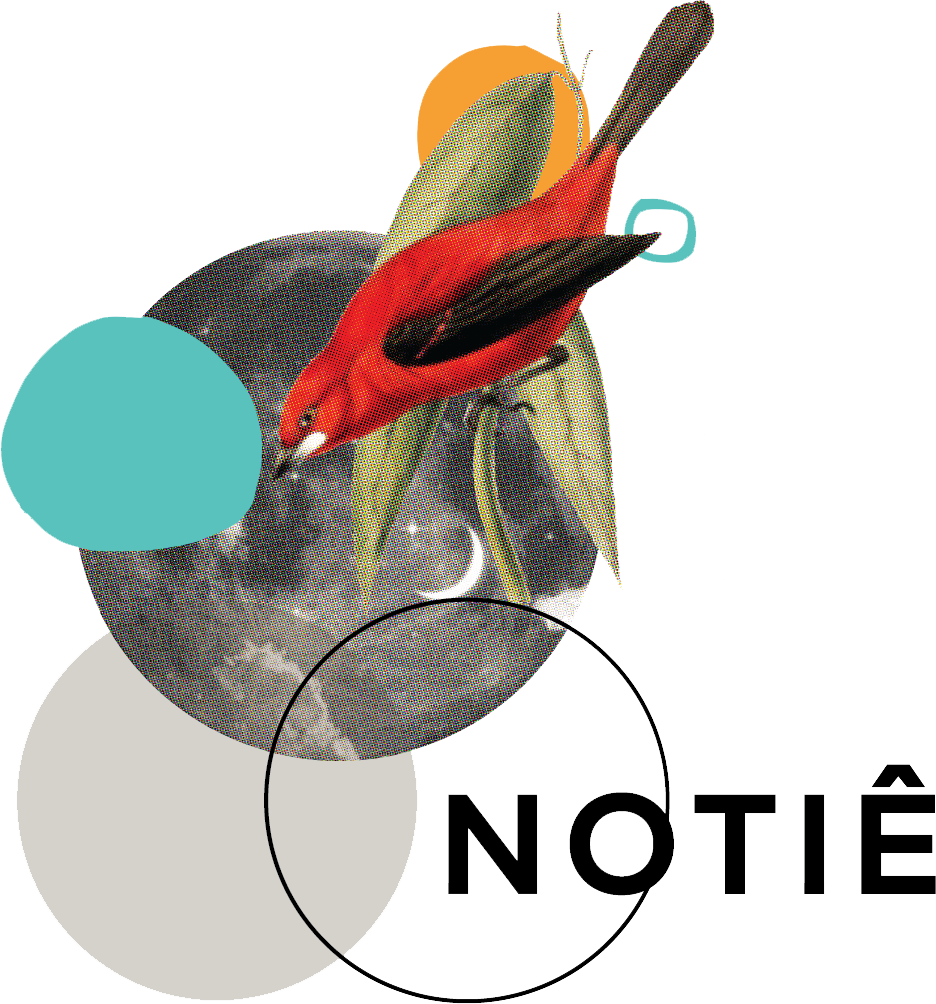Notiê by Priceless is a restaurant originating from research into Brazilian biomes and creations by chef Onildo Rocha, within Espaço Priceless, in São Paulo.


12 course experience
by Onildo Rocha
Jarê Ceremony
Banana and beef jerky godó
Chicken and cassava xinxim
Sesame and black garlic balls
Abará, shiso and Brazil nuts
Palm cortado and scallop
Cashew and roe
Jackfruit and tapioca moqueca
Fish and Papaya
Lamb, yam and coffee
Coconut, coriander and pepper
Corn, couscous and fennel
R$ 624
PAIRING
Tasting menu paired with selected wines
Price on request
8 course experience
by Onildo Rocha
Jarê Ceremony
Banana and beef jerky godó
Chicken and cassava xinxim
Abará, shiso and Brazil nuts
Cashew and roe
Jackfruit and tapioca moqueca
Lamb, yam and coffee
Corn, couscous and fennel
R$ 468
PAIRING
Tasting menu paired with selected wines
Price on request
5 course experience
by Onildo Rocha
Jarê Ceremony
Abará, shiso and Brazil nuts
Cashew and roe
Lamb, yam and coffee
Corn, couscous and fennel
R$ 282
PAIRING
Tasting menu paired with selected wines
Price on request
The new season of Notiê by Priceless is set at an altar, a sacred land called Chapada Diamantina.
The rocks reveal what was once sea. Today, the massif that occupies the northeastern horizon is home to people who have faith embedded in their souls. People who shape everyday life, making it a place where everything works. Indeed, some of the most award-winning wine and coffee are found in Bahia.
There are even berries. And cassava, the Queen of Brazil, which turns into flour and thickens the mush. Abundant in the semiarid wetlands, fish feed the quilombo, a resistance village from times gone by. Faith is in abundance. Chapada is the birthplace of its own religion, Jarê. With dances and prayers, the table is set in honor of Saint Cosmas and Damian. A caruru that goes far beyond okra. The green fruit, which has not had time to ripen, feeds the hungry in the form of a stew. The palm, a type of cactus common in the Northeast, fills the bowl and becomes a side dish.
Onildo Rocha takes a deep dive to bring to São Paulo downtown what beats hardest in the heart of a suspended Bahia.

Chapada Diamantina: located in the central portion of the state of Bahia, is formed by rocks deposited over the last 700 million years. It is the highest region in the Northeast, with an altitude of 2,033 meters.
Marimbus: large flatlands located at the foot of Sincorá Mountain Range, between Lençóis and Andaraí, is the mini pantanal (wetlands) of Bahia.
Munzuá: long, tapered basket, made of bamboo split poles. Widely used to catch fish.
Curimatã: also called curimbatá, grumatá, sacurimba or papa-terra, is a kind of fish found in several rivers in Brazil. It feeds on organic and plant sediments.
Ximango: a type of cheese bread, prepared with cassava gum in the shape of a stick.
Green banana Godó stew made with sun-dried meat, bacon and other cold meats cooked with green banana and onion, garlic and coriander. Very present in the diet of Chapada miners.
Palm cortadinho the forage palm is a cactus known in the Northeast and widely used in animal feed. Considered a subsistence food, it has great nutritional power. In Chapada, it is made in the form of a stir fried dish, with garlic, onion and scallion and parsley seasoning.
Licuri: known as the country palm tree, can be called by several names such as alicuri, aricui, oricuri and cabeçudo. While green, the fruits have a watery texture inside, which hardens during ripening, giving rise to almonds. This “little nut”, in addition to being used in the manufacture of a type of oil, serves as an ingredient in the making of sweets and jellies.
Umbu: typical fruit of the scrubland region (Caatinga), its name comes from the Tupi ymbu, which means tree that provides water. It has a thin skin and tasty, slightly sour pulp. Widely used in jams, sweets, liqueurs and ice creams.
Jackfruit “heart of palm” the green fruit sprout, when cooked, has the consistency of heart of palm. It is used to prepare stews, as well as filling pastries and other savory snacks. It replaces protein in vegetarian recipes.
Jarê: a religion born in Chapada Diamantina and which mixes Catholicism, African-based religions and indigenous culture. Its main celebrations take place in September, in honor of Saint Cosmas and Damian (Ibeji), and in December, in honor of Saint Barbara (Iansã)
Caruru de São Cosme e Damião: banquet held in honor of the saints (Ibeji) and which, in addition to caruru (a recipe that includes okra, shrimp, cashew nuts, coriander and palm oil, among other ingredients), is served with dishes such as chicken xinxim, vatapá and black- eyed peas. According to tradition, children must be served first.
Palm oil the oil palm or palm tree originates on the African coast and has adapted very well to Brazilian soil, especially that of the Northeast. With a sweet flavor, it is widely used in the preparation of various Bahia dishes such as moqueca, acarajé and shrimp bobó.

